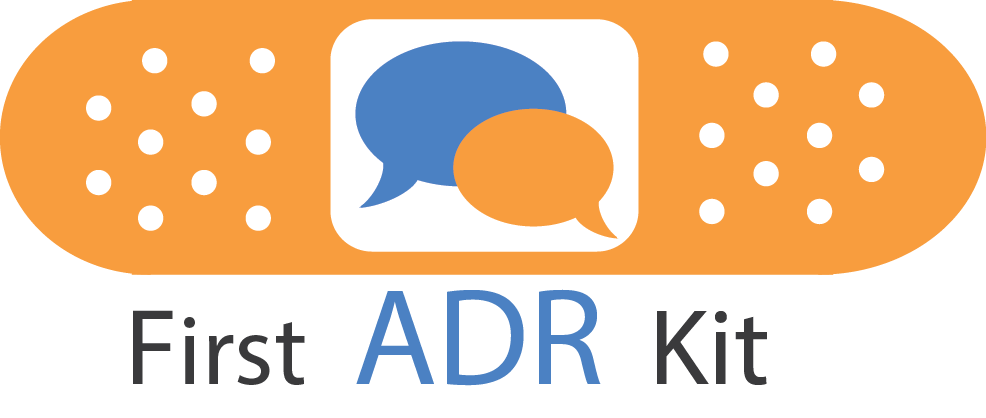Alternative Dispute Resolution sounds complicated? It couldn’t be any less true! Mediation and ADR are not only theoretical elements of a conflict resolution process, but they are so much more: a vast sources of useful competences and knowledge that can be helpful in every day communication.
ADR and Non-Formal Education
Combining ADR with Non-Formal Education
Alternative Dispute Resolution is all about the skills: of listening, paying attention, asking the right questions, being thoughtful, creative, patient and well-organised.
All those personal skills and competences have been the area of focus of Non-Formal Education (NFE) from the very beginning of its implementation. The methods of practical workshops, simulations, role plays and strong emphasis on the process of self-education and self-evaluation have been designed precisely to develop the so-called ‘soft skills’ – skills connected with communication, social behaviour, conflict management, entrepreneurship, analysis, etc. They have given the ground for European Commission’s system of eight main competences that can be developed within the framework of Non-Formal Education and should be recognised by employers and institutions in all European Union countries.
Non-Formal Education is regarded as one the most immersive, practical, learner-centred approaches in education. It allows participants to learn not only the theory, but also to test and evaluate themselves in the entire process.
The most distinctive non-formal education features are:
- focus on gaining practical competences, such as: interpersonal, team, organisational and conflict management, intercultural management, intercultural awareness, leadership, planning, organising, practical problem-solving skills, teamwork, self-confidence, discipline and responsibility;
- allowing participants to be actively involved in educational and learning process;
- providing a shared process of learning, designing and creating environment in which the participant is an architect of the skill-development;
- flexible form, based on the needs of participants;
- development of practical skills but also human capabilities and motivations;
- participatory and learner-centred approach;
- it is based on experience and action.
We were not afraid to test if Non-Formal Education can be used to teach Alternative Dispute Resolution in youth projects. In December 2014 we organised a training course for youth workers from 11 EU and Eastern Partnership countries: “DECODE: Decoding Conflicts Through Dialogue” held in Krakow, Poland. The project met with a very positive feedback from the participants and resulted in a set of new methods and workshop scenarios that are currently being implemented in youth education.
One of the outcomes of the training course was development of a new educational simulation game called “Atlantis” that brings participants to an imaginary land of Six Islands and allows them to experience and practice solving intercultural conflicts.
We are working all the time to improve our methods and deliver high quality training activities. In November 2014 we organised another international training course focused on teaching ADR with the use of NFE in Tallinn, Estonia: “Step into the Dialogue” and in December 2016 we held “Inter-Mediate” training course on mediation in intercultural conflicts in Worcester, UK.
To see what events are taking place within First ADR Kit visit our Homepage or follow us on Facebook to always stay up to date.





